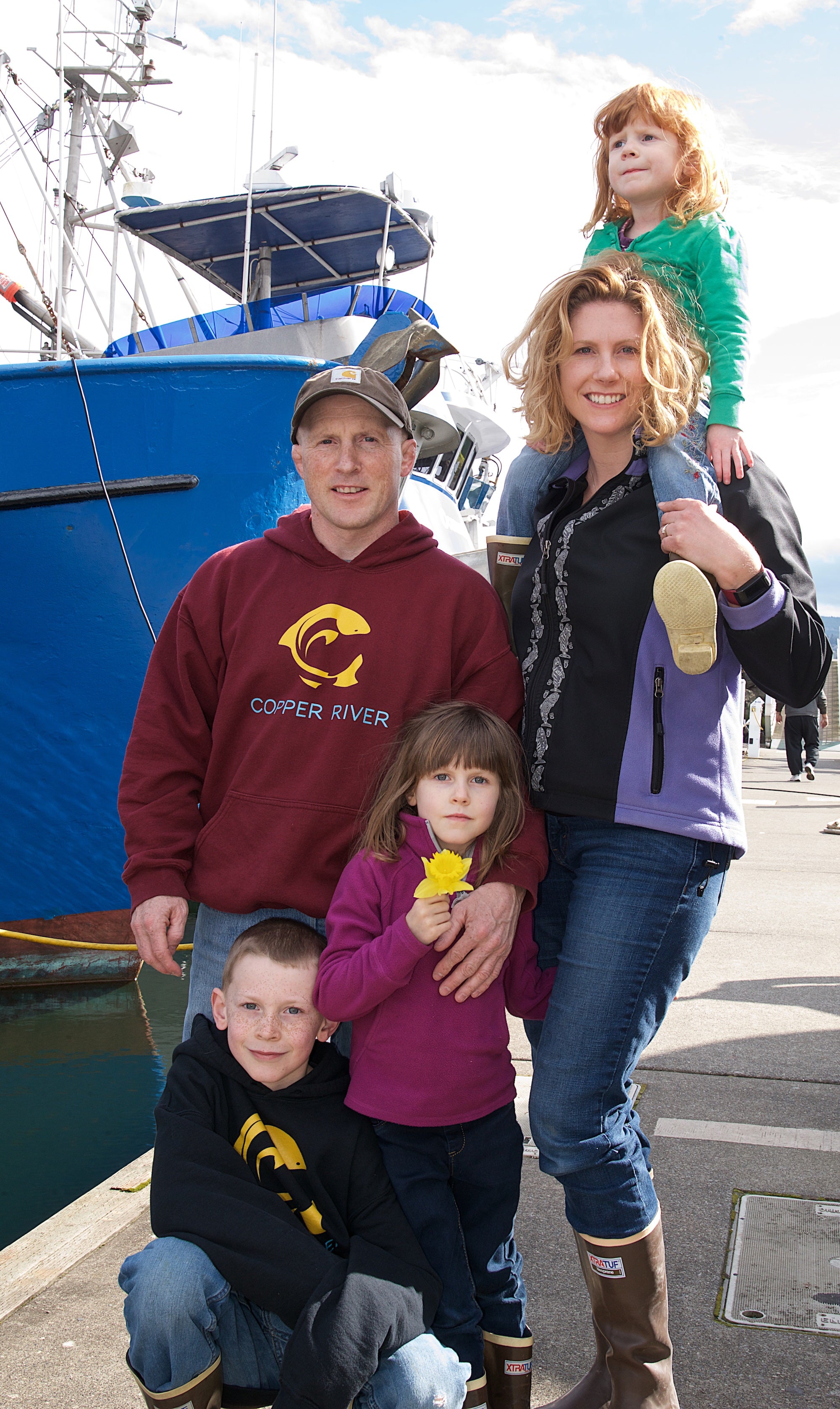In the spring, Rich goes out longlining for Halibut and Black Cod. Then he spends his summer salmon fishing in the Copper River Delta.
Traditional Longlining
Rich broke into fishing through longlining. My family (Dad, Uncles, Grandpa, Great Uncles…you get the idea) were all longliners. They fished on the traditional wooden boats of the Seattle fleet.
Every spring they took the boat up north, fished in Alaska all spring and summer, and then brought the boat back down to Seattle in the fall for a winter of never-ending boat repairs and maintenance.
Longlining is a traditional fishing method and hasn’t really changed for generations. It is essentially just one line a couple miles long, with hooks about every 42 inches. The line is laid on the bottom of the ocean, secured with anchors, and marked with buoys. It's usually about 100-500 fathoms deep (a fathom is 6 feet). The fisherman targets either halibut or black cod using knowledge of the ocean, depth and topography.
The problem
Here’s the problem - generations of sperm whales have been learning a new trick. Instead of searching out food, they search out longline boats. Once they find a boat, they just pick the fish off like grapes as the line is being hauled in. Even worse, they don’t leave. The fishermen can move to a new area, but the whales will follow it. Often boats just have to go in once the whales show up.
For some reason, the sperm whales prefer the Black Cod and generally leave the halibut alone. Just imagine the frustration of the fishermen. It takes so much work (and fuel) to get out to the grounds, set the gear, and haul it…just to feed the whales!
Lose - Lose:
1. Bad for the whales. This change in feeding habits cannot be good for the whales. They should be teaching their young to hunt, not chase boats.
2. Bad for the fish. The federal government closely monitors and controls the number of black cod being caught with the IFQ (Individual Fishing Quota) system. However, the fish plucked off the line by the whales never get counted nor accounted for.
3. Bad for the fishermen. A fisherman has to be able to catch his quota (allotted number of fish) to earn a living and feed his family.
Time for a change
Pot fishing for Black Cod could be the solution we have been looking for! It’s kind of a cross between longlining and crabbing. They still use a really long line, but with pots every 30 fathoms (180 feet) instead of hooks. They are round, medium sized pots. Smaller than a crab pot, but bigger than a shrimp pot.
The concept is simple- the pot becomes a barrier so the whales can’t eat the fish. But re-configuring the boats and changing the way we have been fishing for 100 years is not that simple!
Right now, switching over to pots is not mandatory for the fleet, but some boats are opting to make the change.
Outcome
Rich longlines on the F/V Robert Magnus, a great boat with a great crew. This year, they took the plunge and reconfigured the boat to pot fish for Black Cod. It was a lot of work. Rich came home exhausted but hopeful. Although there is a bit of a learning curve, Rich could definitely see some benefits.
Win-Win:
1. Better for the whales. The boat had zero interaction with whales.
2. Better for the fish. The by-catch (catching other species of fish) was almost zero, probably due to the specialized tunnels the fish swim through to enter the pot.
3. Better for the fishermen. Of course, retaining all the fish that was caught is a huge benefit. Also a plus is the ability to leave the pots and come back if the weather is bad. This could help keep our fishermen safe.
Personally, Rich and I are excited to see this change come about. We pride ourselves on fishing wild and sustainable, and we feel that pot fishing is aligned with these values.
Change is not always easy, but it's great to see everyone come together and figure out a solution that benefits and protects the wild stock, while keeping fishing sustainable and limiting the interference of other species.
Eat fish and be happy,
- Sena C Wheeler
www.senasea.com
Sena holds degrees in nutrition and food science in addition to being a Mom, foodie, and third generation fisherman's wife. Visit her at SenaSea.com where she blogs about family, fish and food. 
If you haven't yet, join the community and receive our FREE cookbook! With instant access to our family recipes and tips you can cook excellent fish with confidence. Plus you'll receive 10% off your first purchase!
Have a friend that would love this article? Share the love and pass it on! Our family business runs on word of mouth and we appreciate you taking the time to help us out. Thanks! -Sena







